- Home
- About
-
Services
- Therapy
-
Eating Disorder Trainings
>
- Clinical Approaches To Treating Body Image Issues
- Clinical Approaches To Treating Bulimia & Binge Eating Disorder
- Finding Freedom From Binge Eating
- Finding Freedom From Anorexia
- Supporting A Loved One With An Eating Disorder
- Eating Disorder Recovery Road Map
- Healing From Body Hate And Practicing Self-Compassion
- Common Questions
- Blog
- Press
- Contact
|
Jennifer: Tell me a little bit about your struggle with an eating disorder (please avoid numbers of graphic descriptions of behaviors, so as not to trigger my readers): Sarah: I developed an eating disorder when I was thirteen and by 14 I had spiraled into the black depths of the illness. I sought help, and by my own strength I was able to get a little better and maintain my life, but I was still engaging in disordered eating and exercise. I was high-functioning in some ways, but still struggling with my eating disorder for another four years before gradually starting to gain weight at around the age of 19. I gained a significant amount of weight, but this was short-lived, and my mental and physical health dramatically deteriorated between the ages of 19 and 21. Jennifer: What do you think was the function of your eating disorder in your life? Sarah: I think it was a method of control. It was a way of feeling powerful. It was a way of feeling like I was really good at something. I felt very average as a teenager, and it was my way of excelling at something. Even though I already had many talents, I just couldn't see them. And that something that I excelled at was the envy of a lot of girls (and later, to young women): to successfully lose weight. I felt so disciplined; so contained; so aloof. It made me feel special. I think there is a split between those who feel shame about their eating disorders, and so try to hide them, and those who feel pride. I felt pride. I felt like it set me apart from other people, and I felt like it made me strong. It didn't: it made me weak, and miserable, and powerless. It made me into a shell. It hollowed me out and swallowed so many of the good things about me. Jennifer: Was there a turning point for you, where you really started to embrace the idea of recovery? Sarah: I realized that I was going to have to choose between my eating disorder, and my partner at the time. I could not have a relationship with both. More importantly, I realized that I was going to have to choose between life and death. I felt so hopeless and desperate, and I felt like I could not go on. I was suicidal. I knew that I had to get out of the situation that I was in, and for me it felt like I had to opt out or opt in. I chose to opt in, and I started to make small steps towards recovery, that eventually turned into leaps and bounds. Jennifer: What helped you get through the tough times in recovery? Sarah: Knowing that there wasn't really an option to go back, because I knew exactly what that held for me. I didn't know what going forwards could bring, but I was willing to find out, however hard it was. I also knew that in order to live my life the way I wanted it, I had to be well. During my recovery, my partner at the time broke up with me. I was distraught, but it proved to me even more that I needed to move forwards. I couldn't have a healthy, happy relationship whilst I was unwell. I couldn't go traveling. I couldn't maintain my hobbies. I couldn't be anything but deeply depressed. And so I kept pushing forwards. Jennifer: What was the most helpful for you in terms of your recovery? Sarah: I came across Your Eatopia (now The ED Institute) when I was just getting into recovery and it was my lifeline throughout my recovery. I used the forums nearly every day and I don't know what I would have done without it. Jennifer: If you could go back and talk to your younger self who was really struggling, what would you want to say to her? Sarah: I'd love to think that there could have been something that would have prevented me living over ten years of my life with a torturous illness, but I'm not sure anything would have altered my course. In the end, I am who I am because of my experiences, and I would not change that for the world. Because of my eating disorder, I have learned not only to recover, but to completely reject diet culture and embrace health at every size in the process. I don't think without my eating disorder I would have come across the information that has freed me for life from the terrible consequences of believing in that culture and succumbing to it. Jennifer: How is your life in recovery (or recovered) different from your life in an eating disorder? What would you say are some of the benefits of being recovered? Sarah: I am happy. I am healthy. I am able to think. I am able to do. I am able to be. I am free to live my life in the way that I want to. My life is the opposite of living with an active eating disorder. That's not to say that everything is always peachy, because life is stressful. But I live in my own flat with my partner Josh, and we have a healthy, happy, well functioning relationship. I work full time in care with people with eating disorders. I have hobbies and interests which I am able to engage in. I FEEL good in my body. I FEEL well. There are no downsides to being recovered. Recovery is an intensely difficult journey, but it gives you your life and your self back, and the ability to discover new things about yourself and the world. It is, and will always be, the best thing that I ever did. Jennifer: What are some of your favorite recovery resources? (i.e. books, articles, podcasts, etc). Sarah: The body positivity community on Instagram. Megan Crabb's book Body Positive Power. The ED Institute. For an extensive list of all my favorite articles, book, social media sites etc, they are all listed under my website at everythingedrecovery.com/resources Follow Sarah on Instagram @bodypositivepear Jennifer Rollin, MSW, LCSW-C: is an eating disorder therapist in private practice in Rockville, Maryland. Jennifer specializes in helping teens and adults struggling with anorexia, binge eating disorder, and bulimia, and body image issues. Jennifer provides eating disorder therapy in Rockville, MD, easily accessible to individuals in Potomac, North Potomac, Bethesda, Olney, Germantown, and Washington D.C. Connect with Jennifer through her website: www.jenniferrollin.com Check out Jennifer's new training "Finding Freedom from Binge Eating!"
0 Comments
“It seems like I’m actually experiencing my feelings, now that I’m no longer bingeing and purging my emotions,” my client in recovery from bulimia shared. One thing that almost all of my clients with eating disorders have in common is difficulty in expressing, processing, and coping with their emotions. Often eating disorders are a (temporarily) effective way for people to numb out from or attempt to regulate intense emotions, however in the long-term they often cause increased distress, anxiety, and unhappiness. A Healthy Perspective on Emotions We live in a culture where we are often taught to try to “numb out from” or to avoid our emotions. We are given this message from the time that we were children, when many of us were told things like "don't cry," or "you don't need to be sad." On the surface this seems comforting, however ultimately the message given is that we need to judge or try to suppress our emotions. People who are intensely struggling with an eating disorder often are emotionally disconnected. When unpleasant emotions surface, they may turn to an eating disorder behavior in an attempt to try to "feel better." It's important to note that we cannot “selectively numb emotions.” When we numb out from sadness, we also numb out from being able to truly feel happiness. Additionally, trying to “get rid” of our emotions is like trying to hold a beach ball under water. It takes a ton of effort and eventually it will pop back up to the surface with force. The following are a few reminders when it comes to your emotions:
Let Yourself Feel It’s so important to practice the skills of mindfulness, non-judgement and radical acceptance of emotions. This will be a crucial aspect of recovering from your eating disorder, and living a life according to your values. Turning to eating disorder behaviors, is a “temporary” fix for regulating emotions, and it often comes at an incredibly high cost. I recently heard a powerful quote that sums this up beautifully. “Your feelings will not kill you. Nobody has ever died of an emotion. They have died trying to stop their emotions” –Norah Wynne, Clinical Director at Monte Nido Vido. Your feelings will not kill you. And letting yourself experience them, and practice healthier ways to process and cope with difficult emotions, will only enhance your recovery-and your life. Jennifer Rollin, MSW, LCSW-C: is an eating disorder therapist in private practice in Rockville, Maryland. Jennifer specializes in helping teens and adults struggling with anorexia, binge eating disorder, and bulimia, and body image issues. Jennifer provides eating disorder therapy in Rockville, MD, easily accessible to individuals in Potomac, North Potomac, Bethesda, Olney, Germantown, and Washington D.C. Connect with Jennifer through her website: www.jenniferrollin.com Check out Jennifer's new training "Finding Freedom from Binge Eating!" Check out the gifts of emotions by Pia Mellody below.
"I don’t know why I’m so obsessed with my weight...I feel like I’m just shallow.” Full stop. As an eating disorder therapist, I can’t tell you the number of times that I have heard this kind of statement from a client in recovery. Often people with eating disorders struggle with feelings of shame around their thoughts or behaviors. This is unfortunately, frequently reinforced and perpetuated by our culture. A few celebrities (I’m looking at you Meghan Trainor and Amy Schumer) have made jokes that they didn’t have the “willpower” to have an eating disorder. You Aren’t Shallow Here’s the thing. An eating disorder isn’t just “a diet gone to far,” “willpower or lack there of,” or someone who is simply vain or shallow. Eating disorders are the deadliest mental illness. They are caused by a combination of genetic, biological, temperamental, and environmental factors. Symptoms often manifest with a preoccupation around food and weight. However, that’s generally the tip of the iceberg. Eating disorder treatment is about helping people to develop a healthy relationship to food and their bodies. It also entails helping clients learn how to process and cope with intense emotions, work through any potential underlying trauma, and develop a more compassionate way of relating to themselves. Additionally, the fact that my clients are so upset with the idea that “they are shallow” is a clear indicator that they are not, because the eating disorder fixation on weight and body often goes completely against their true values. It’s a Half-Life Struggling with an eating disorder often feels like living a half-life. Even if on the surface you are accomplishing things, there is often part of you that is numbed out, unhappy, or disconnected. Many people also initially struggle with constant thoughts about food, weight, and their body. Struggling with an eating disorder is kind of like being a fish swimming in polluted water. When you are in it, it may feel comfortable and familiar, and often it can be difficult to fully see the ways in which your life is being negatively impacted. Eating disorders aren’t a choice. Many of my clients initially blame themselves for developing an eating disorder. But having an eating disorder is NOT your fault. It was completely not your choice to get sick, however working on recovery is a choice. It’s a decision that you may have to make over and over again, until you are recovered and it’s simply a way of being. Jennifer Rollin, MSW, LCSW-C: is an eating disorder therapist in private practice in Rockville, Maryland. Jennifer specializes in helping teens and adults struggling with anorexia, binge eating disorder, and bulimia, and body image issues. Jennifer provides eating disorder therapy in Rockville, MD, easily accessible to individuals in Potomac, North Potomac, Bethesda, Olney, Germantown, and Washington D.C. Connect with Jennifer through her website: www.jenniferrollin.com Jennifer also offers online trainings for professionals on eating disorders and body image issues. I believe that many great accomplishments start with a solid plan. For instance, before I launched my private therapy practice-I came up with a business plan. I attribute much of my current success, to the plan that I created. I also have made monthly goal lists for a long time and the interesting thing is that looking back on my old lists-many of the dreams I had listed-actually came to fruition. From writing for The Huffington Post, to speaking at The BEDA/NEDA conference, to having a thriving therapy practice helping people with eating disorders. The Importance of Creating a Recovery Plan The thing is, when we get very clear about what we want, as well as potential obstacles, and gain insight into our current situation, incredible things can happen. The reality is that often the things that we focus on expand. This can work in either helpful or unhelpful ways. For instance, let’s say that you have the core belief “I am such a failure.” You likely will start to see “evidence” of your belief everywhere. The reason behind this phenomenon is that we have a reticular activating system within the neocortex of our brain. This system helps us to filter important information and impacts what we focus on. It heightens our awareness of certain things. This applies to coming up with a specific plan, as it heightens our awareness of opportunities, ideas, and resources, that can aid up in achieving our goals. For instance, coming up with a plan for your recovery from an eating disorder, can help you to attune to aspects of your environment, that could help you in your recovery. Creating a plan gives you solid goals, action steps, and mindfulness of your current state. I believe that these aspects are so critical when it comes to recovering form your eating disorder I have the privilege to be able to help clients to recover from eating disorders, and they inspire me with their strength everyday. However, I wanted to be able to reach more people. There was this strong voice inside me, which said that I needed to create a resource for people to set them up on the path to recovering from their eating disorder. That’s why I created, “The Eating Disorder Recovery Road Map," a 15 page workbook plus guided audio, which enables you to create your own personalized recovery plan. I think of myself as someone with pretty high energy (shoutout to ample carbs, fat, and protein!), but creating this resource was unlike anything I’ve done before. I woke up, had this idea, and felt driven to put it out into the world. Somehow amidst, a full day of seeing clients-I used my breaks and time before/after work, to create this resource-that I’m incredibly proud of. Struggling with constant thoughts about food and your body is exhausting. Grab your copy of "The Eating Disorder Recovery Road Map" and take another step closer to the freedom that you deserve. Jennifer Rollin, MSW, LCSW-C: is an eating disorder therapist in private practice in Rockville, Maryland. Jennifer specializes in helping teens and adults struggling with anorexia, binge eating disorder, and bulimia, and body image issues. Jennifer provides eating disorder therapy in Rockville, MD, easily accessible to individuals in Potomac, North Potomac, Bethesda, Olney, Germantown, and Washington D.C. Connect with Jennifer through her website: www.jenniferrollin.com Jennifer also offers online trainings for professionals on eating disorders and body image issues. |
About MeI'm an eating disorder therapist in private practice in Rockville, MD. Archives
June 2024
|
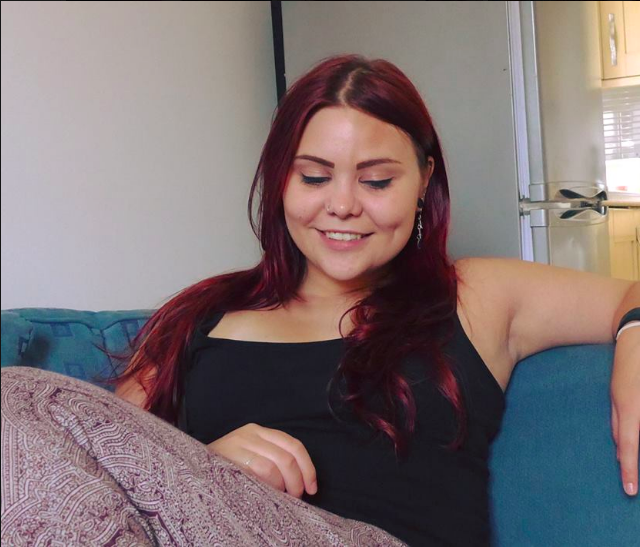

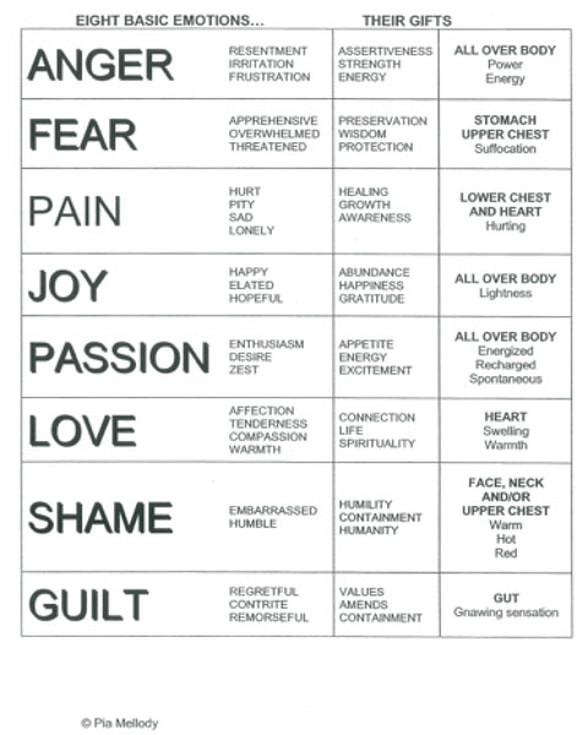

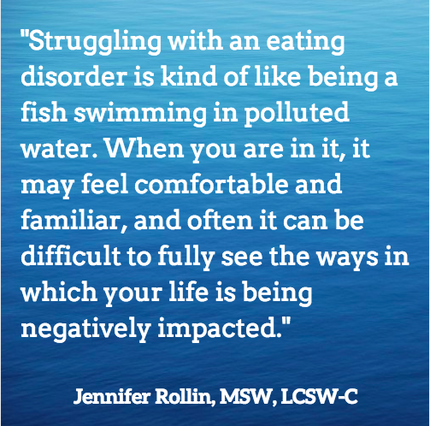
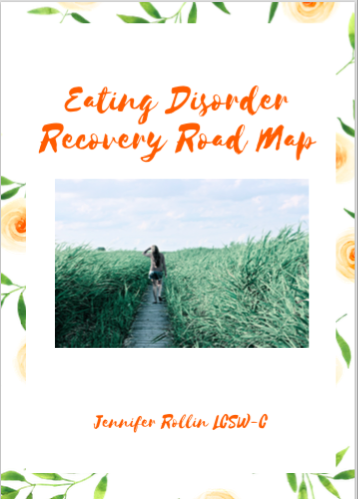
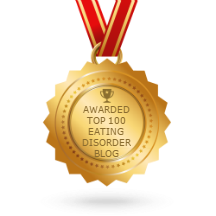
 RSS Feed
RSS Feed
